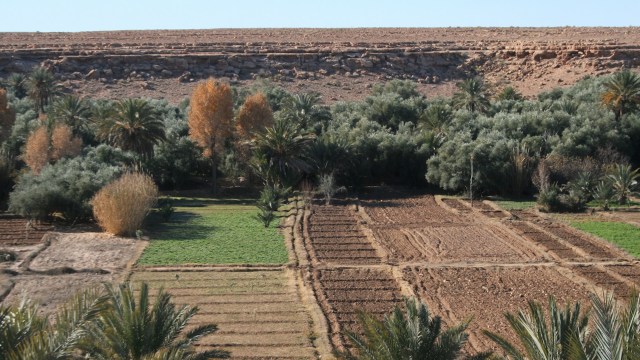Scientists use advanced lab work to keep critical crop alive amid relentless drought: 'It has become essential'

Scientists in Morocco have developed several varieties of drought-resistant, high-yield grains to combat food insecurity amid the country's persistent drought of recent years.
As reported on Phys.org, Morocco is facing its sixth consecutive year of drought, making it harder to grow crops that can weather the harsh conditions.
Mohamed Sadiki — Morocco's minister of Agriculture, Maritime Fisheries, Rural Development, and Water and Forests — expects the country to have a 20% lower crop yield and fewer areas suitable for agriculture this year, as detailed by the Middle East Monitor.
The drought is so severe that authorities have been forced to impose water restrictions on farmers, leaving them no choice but to dig deep wells to access water for irrigation. As Reuters explained, the country has received 70% less rainfall than average in recent months.
However, despite the dire situation, scientists at the International Center for Agricultural Research in Dry Areas are meeting the challenge by cultivating more resilient wheat, barley, and other crops.
"It has become essential to use resilient seeds and to employ them as quickly as possible," Wuletaw Tadesse Degu, who leads ICARDA's wheat breeding program, told Phys.org.
Watch now: World-famous climber shares how he teaches his baby daughter to compost
The international organization has created 30 "elite lines" of grains in 17 countries throughout Asia and Africa by "breeding genotypes of wild wheat with different ancestors," as ICARDA genetics researcher Ahmed Amri said.
The organization also helps farmers implement sustainable farming practices, such as controlled irrigation and planting seeds at different times, to boost production. These strategies have helped farmers in Marchouch, a commune in Morocco, grow over 8,000 pounds of wheat for every hectare (one hectare is approximately 2.47 acres) last year, all with just over 7 inches of rain.
"The difference in quality between our field and others is striking," Tadesse said, comparing the flourishing wheat fields to others that were struggling nearby.
Farmers in Morocco have even been able to turn unproductive land into healthy fields with less than an inch of water using these techniques. Miguel Sanchez Garcia, an ICARDA barley expert, said climate-resilient barley genotypes produced abundant yields last year (around 3,300-4,400 pounds per hectare).
According to the World Resources Institute, a nonprofit research agency, Morocco is predicted to experience "extremely high" water stress by 2040. This means it is crucial for the country to adopt water conservation and climate-smart agricultural methods, as detailed by Phys.org.
ICARDA is deploying other strategies to bolster Morocco's food supplies as the planet warms, such as opening a genebank in 2022 that currently holds a collection of 108,000 groups of plant genetic resources.
It also helped farmers install low-energy solar-powered drip-irrigation systems to reduce water use and has introduced 66 crop varieties in the country, including six drought-resistant durum wheat and barley crops.
All over the world, scientists are racing to breed weatherproof crops that can withstand the changing climate, including super potatoes, melons, and even poisonous pea plants, using gene editing to make them safe for humans to eat.
Since wheat and barley are staple crops for dozens of countries, ICARDA's efforts add to the long list of foods that modern science is helping to keep alive.
Join our free newsletter for weekly updates on the coolest innovations improving our lives and saving our planet.
Scientists use advanced lab work to keep critical crop alive amid relentless drought: 'It has become essential' first appeared on The Cool Down.
Welcome to Billionaire Club Co LLC, your gateway to a brand-new social media experience! Sign up today and dive into over 10,000 fresh daily articles and videos curated just for your enjoyment. Enjoy the ad free experience, unlimited content interactions, and get that coveted blue check verification—all for just $1 a month!
Account Frozen
Your account is frozen. You can still view content but cannot interact with it.
Please go to your settings to update your account status.
Open Profile Settings